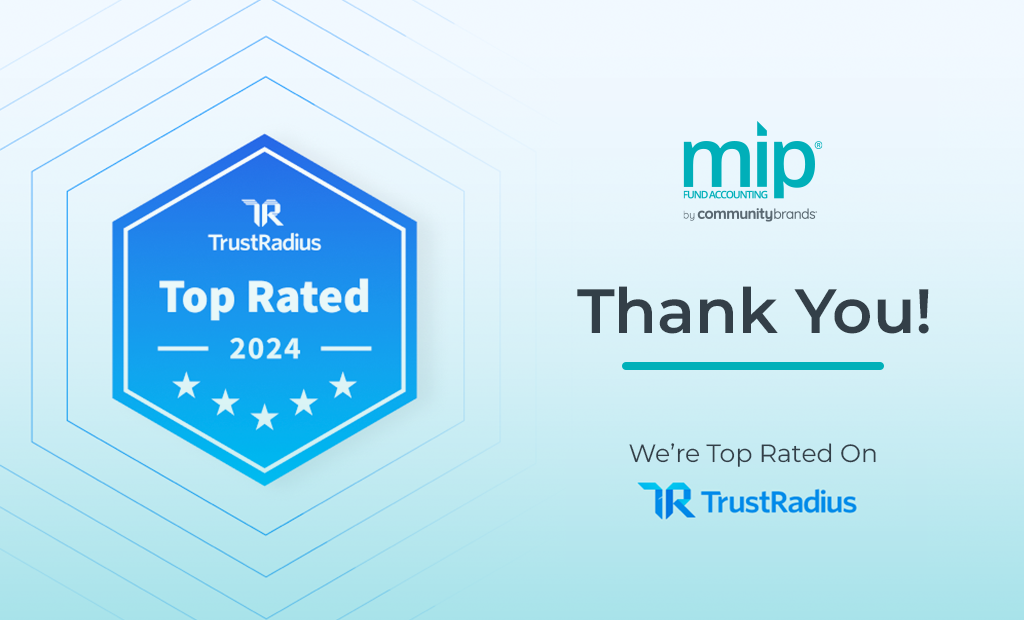Reading Time: 3 minutes
A key focus of any nonprofit or other organization is keeping financial and proprietary donor information secure. Data security is integral to operations and business continuity and securing your complete environment has become more challenging. One of the benefits of operating your financials in a cloud-based environment is that the cloud offers a higher level of security protocol than on-premises software.
The best cloud-based providers follow industry standards for security. SOC compliance is endorsed by the American Institute of Certified Public Accountants and its Statement on Standards for Attestation Engagements (SSAE). Businesses that achieve SSAE certification have undergone a thorough audit of their controls — including security, availability and privacy — and have demonstrated compliance with the SSAE standards. There are several factors to consider with security in the cloud, and cloud security vastly differs from any security offered by spreadsheets or on-premises systems.
The cloud provides enhanced security and data protection
Cloud-based systems include file encryption, where data is encrypted as soon as files are sent over any internet connection. The encryption also extends to protects all your files that are stored on a cloud-hosted server. Metadata is also encrypted and all management communication between your systems and the provider’s cloud run through secure channels with SSL encryption. Cloud-based providers use a web application firewall (WAF) which protects against SQL injection, cross-site scripting, unauthorized resource access, remote file inclusion, and other OWAS (Open Web Application Security) threats. For users, the cloud provides 24/7 data availability, and to do so securely, the cloud provider must uphold service-level agreements such as maintaining redundant infrastructure to minimize downtime and eliminate single points of failure.
Another security factor to consider is the protection of data and digital assets in the event of a natural disaster. If and when natural disasters occur, on-premises systems are susceptible to being destroyed. Conversely, a cloud provider is at a secure alternate location and runs regular backups to ensure data is protected from major outages or loss in case of an emergency. The cloud is inherently designed to keep data safe from theft, unauthorized deletion, data leaks, cyberattacks, and unauthorized access. Cloud security also has the benefit of supporting regulatory compliance requirements. In NTEN’s most recent State of the Nonprofit Report, 57% of nonprofits reported data security was a deciding factor for moving to the cloud.
The cloud can lead to saving money on IT costs
By utilizing an offsite, cloud-based provider, many nonprofits, governmental organizations and educational and faith-based institutions see a reduction in cost because they are able to outsource IT operations and management. Backups, program updates, data security and other IT functions are handled offsite by a team of technical experts. Data protection is centralized and access to the backend of servers is limited to the cloud provider’s team of IT experts, not internal staff. Offshoring some essential IT functions to a cloud provider and not having to maintain on-premises systems has been a cost-saving measure for some organizations.
Scale and collaborate securely in the cloud
The State of the Nonprofit Cloud 2018 Report also found that nonprofits value better performance enabled by the cloud, including collaboration, remote access, mitigation of regional issues, and mobility. Whether your staff is in-house or out-of-office or a hybrid working environment, access to the cloud and necessary data, including donor profiles, financial reports, and payroll data is just a click away. The only thing staff needs to be empowered to do their job anytime and anywhere is a browser and an internet connection. The cloud helps nonprofits not only meet their mission but expedite internal processes so their impact can expand more quickly.
During audits, a cloud system can even provide secure, temporary access to an auditor for downloading and analyzing financial reports. Once the audit work is complete, the user rights granted to the auditor can be disabled, providing organizations in the cloud with instantaneous and flexible scalability. Reports in the cloud are easily designed, customized, edited, viewed, exported, and shared which optimizes collaboration.
Grow with the MIP Cloud
The MIP Cloud fund accounting solution includes modern, cutting-edge, configurable dashboards which eliminate manual tasks, reduce papercuts, and are more functional than spreadsheets. Drag-and-drop features make handling accounting data easier. Additional functionalities expand the possibilities for viewing, interpreting and reporting financial data such as account balances, vendor balances, customer balances, budget balances, and general ledger. And bank reconciliations done in the cloud, as opposed to manually, are much easier and efficient.
Learn how MIP Cloud can help your organization adapt, scale and grow. Join our webinar to learn more or request a demo.




